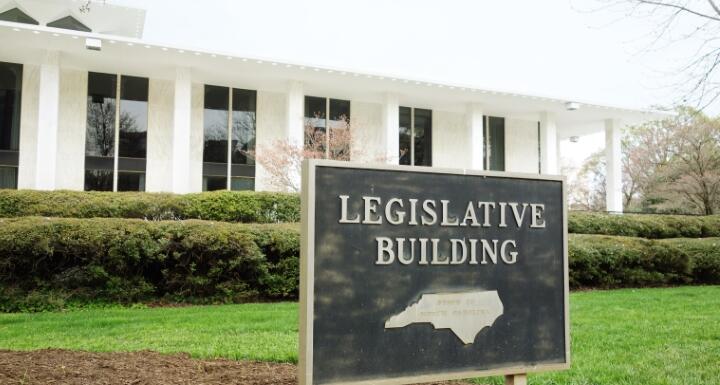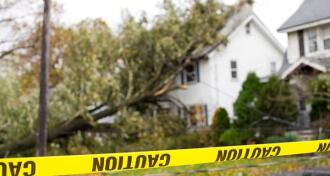On the evening of October 9, the General Assembly convened in Raleigh to pass the first of what we anticipate will be several Hurricane Helene relief packages, House Bill 149.
The House and Senate passed the legislation unanimously yesterday afternoon, and Governor Cooper moved quickly to sign the bill into law this morning, making the bill effective today, October 10, 2024.
House Bill 149 established the Hurricane Helene Disaster Recovery Fund (Helene Fund) and simultaneously appropriated $273 million to the new fund from the State's Savings Reserve.
The legislation also created separate relief funds for the tropical cyclone that recently impacted Brunswick and New Hanover Counties, as well as the tornado that touched down last month in Rocky Mount. The bill includes language to extend the current state of emergency until March 1, 2025.
The $273 million in total appropriations is to be disbursed as follows:
- $250 million of that is appropriated to the Division of Emergency Management, which is to be used primarily for FEMA state matching requirements. A portion of those funds are also to be used to establish a revolving loan program for local governments to assist with cash flow as FEMA reimbursements could be delayed.
- $16 million to cover lost wages for school employees in impacted areas.
- $2 million to be split between the North Carolina League of Municipalities, North Carolina Association of County Commissioners, and North Carolina Association of Regional Councils of Government for technical assistant grants for local governments in their endeavor to draw down as much federal aid as possible. These funds are to be prioritized for counties with a population of less than 250,000. This does not strictly limit those funds to smaller counties.
- $5 million to the State Board of Elections ("SBOE") for voter outreach, temporary staff, reprinting of ballots, and other measures laid out in sections 9.1 and 9.2 of the bill. The elections portion of the bill more or less codifies the State Board of Elections Resolution that was passed on October 7, 2024. The only major modification from the resolution is that the new rules, such as accepting ballots from voters outside of their home county, would apply to all 25 counties in the disaster declaration, not just the 12 counties in the SBOE resolution.
The legislation also:
- Provides school calendar, instructional day, and remote learning flexibility to all affected counties.
- Provides flexibility and additional availability of drinking water and wastewater reserve funds to the affected counties, with the Department of Environmental Quality facilitating the transfers and allocations.
- Relaxes regulations on open burning of storm debris and Air Curtain Incinerators used for storm debris cleanup.
- Revives and extends the Rapid Recovery Loan program through The Golden Leaf Foundation for SBA loan administration.
- Waives certain DMV fees, permitting requirements for repairs of the state highway system, and interest, with an allowable extension, for filing of taxes for partnerships and S Corps.
- Waives certain mandatory standards for childcare licensure.
- Temporarily authorizes increases and relocation of home dialysis and in-center dialysis stations.
- Temporarily extends the provision licenses for adult care homes and family care homes.
- Provides for a grace period until March 1, 2025, for corporations, nonprofits, and LLCs to file or correct dissolution paperwork.
- Prohibits the North Carolina Department of Insurance, cities, and counties from charging fees related to inspections, permits, and Certificates of Occupancy for any construction, reconstruction, alteration, repair, movement to another site, removal, or demolition of any structure that was damaged as a direct result of the storm. This particular section expires on December 31, 2024.
The Ward and Smith Government Relations Team has been working closely with House and Senate leadership, as well as lawmakers from the impacted counties, to ensure that future relief packages address the ongoing needs of our mountain communities.
We are confident that House Bill 149 was just the beginning of state support for Hurricane Helene recovery efforts and that the General Assembly plans to provide additional funding in subsequent sessions. Toward that end, lawmakers voted to amend their adjournment resolution to allow for additional sessions. The General Assembly will reconvene for a second Hurricane Helene relief session on October 24th to further support western North Carolina's recovery.
The General Assembly will reconvene for a second Hurricane Helene relief session on October 24 to further support western North Carolina's recovery.
Ward and Smith's Government Relations Team stands ready to assist businesses, municipalities, and industry organizations as we work together to recover from Hurricane Helene. We know that together, we are #WNCStrong.









